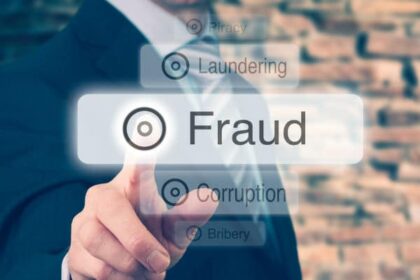Matthew C. Browndorf, a 54-year-old California lawyer, has been sentenced to more than five years in federal prison for a brazen scheme that saw him siphon over $2.4 million from his clients’ trust accounts. The funds, meant to be held securely, were instead used to fuel a lavish lifestyle, including payments on a Ferrari, a Maserati, a mortgage, and substantial American Express bills. The sentencing, handed down by U.S. District Judge Lydia K. Griggsby in Greenbelt, Maryland, brings an end to a multi-year fraud that exploited the trust placed in Browndorf by his clients.
The Mechanics of the Fraud: How Browndorf Stole Millions
Browndorf, a licensed attorney in New York, Pennsylvania, and New Jersey, was a partner at a law firm and the majority owner and CEO of Plutos Sama, LLC, a holding company for his various business ventures. The scheme began to unfold after Plutos Sama acquired the Fisher Law Group, rebranding it as BP Fisher. This new entity represented lenders and loan servicing clients in foreclosure proceedings.
BP Fisher’s business model involved facilitating property foreclosures, deducting expenses, and returning the remaining funds to clients. To manage these client funds, BP Fisher maintained an Interest on Lawyer’s Trust Account (IOLTA) and an operating account, both overseen by Browndorf. IOLTA accounts are specifically designed to hold client funds securely, and the money within them can only be used for specific, client-related purposes, such as returning funds after foreclosure proceedings or paying pre-approved expenses.
However, Browndorf systematically violated this trust. He led clients to believe their funds were readily available in the BP Fisher IOLTA accounts, while secretly directing employees to transfer the money into Plutos Sama accounts and other accounts under his control. This misdirection of funds, a classic example of wire fraud, allowed Browndorf to access and utilize the money for his personal gain.
The High Cost of Deceit: Tracing the Stolen Funds
The stolen $2.4 million was not used for legitimate business expenses or client reimbursements. Instead, court documents revealed a pattern of extravagant spending that directly benefited Browndorf. The funds were used to cover:
- Luxury Car Lease Payments: Payments were made to Ferrari and Maserati of Newport Beach, indicating Browndorf leased high-end vehicles using stolen client funds.
- Mortgage Payments: The stolen money was used to cover mortgage expenses, suggesting a significant portion of Browndorf’s housing costs were funded illegally.
- American Express Credit Card Bills: Substantial charges on Browndorf’s American Express card were paid using the misappropriated funds, pointing to a broad range of personal spending fueled by the fraud.
- Other personal expenses.
This blatant misuse of client funds highlights the severity of Browndorf’s breach of trust and the calculated nature of his criminal activity.
The Investigation and Prosecution: Bringing Browndorf to Justice
The investigation into Browndorf’s activities was a collaborative effort involving multiple agencies, demonstrating the seriousness with which financial crimes are pursued. The key players included:
- The Federal Bureau of Investigation (FBI), Baltimore Field Office: The FBI played a crucial role in uncovering the complex financial transactions and tracing the flow of stolen funds. Special Agent in Charge William J. DelBagno led the FBI’s involvement.
- The Federal Housing Finance Agency, Office of Inspector General (FHFA-OIG): The FHFA-OIG’s involvement likely stemmed from the connection to foreclosure proceedings and the potential impact on the housing finance system. Special Agent in Charge Edwin Bonano represented the FHFA-OIG.
- The U.S. Attorney’s Office for the District of Maryland: U.S. Attorney Kelly O. Hayes announced the sentence, emphasizing the commitment of the office to prosecuting financial fraud. Assistant U.S. Attorneys Christopher Sarma, Joshua Rosenthal, and Matthew Phelps prosecuted the case.
The successful prosecution and sentencing underscore the importance of inter-agency cooperation in combating complex financial crimes.
The Significance of the IOLTA Account Violation
The misuse of funds from an IOLTA account is a particularly egregious aspect of this case. IOLTA accounts are fundamental to the legal profession’s ethical obligations. They are designed to:
- Safeguard Client Funds: IOLTA accounts ensure that client money is kept separate from a lawyer’s or law firm’s operating funds, preventing commingling and misuse.
- Maintain Client Trust: The existence of IOLTA accounts reassures clients that their funds are protected and will be used only for their intended purpose.
- Uphold the Integrity of the Legal Profession: Strict rules governing IOLTA accounts help maintain public confidence in the legal system.
Browndorf’s violation of these principles represents a severe breach of ethical and legal duties. It not only harmed his clients financially but also damaged the reputation of the legal profession as a whole. This case serves as a stark reminder of the importance of ethical conduct and the consequences of abusing positions of trust.
Protecting Yourself from Legal Fraud: Tips and Resources
While most lawyers are ethical and uphold their fiduciary duties, this case highlights the potential for fraud. Here are some tips to help protect yourself:
- Due Diligence: Before entrusting funds to any professional, including a lawyer, conduct thorough research. Check their credentials, licensing, and disciplinary history with the relevant state bar association.
- Clear Communication: Establish clear written agreements outlining the purpose of any funds held in trust and how they will be managed.
- Regular Account Statements: Request and carefully review regular statements for any accounts holding your funds, including IOLTA accounts.
- Ask Questions: If anything seems unclear or suspicious, don’t hesitate to ask questions and seek clarification.
- Report Suspicious Activity: If you suspect fraud, report it immediately to the relevant authorities, such as your state bar association, the police, or the FBI.
Additional context related with law’s firm.
The law’s firm BP Fisher, before named Fisher Law Group was acused of Robosigning. Robo-signing is the practice of having employees sign foreclosure documents without verifying the information they contain. This practice came under scrutiny during the foreclosure crisis of the late 2000s. The firm was involved in several controversies, including allegations of improper foreclosure practices. The acquisition of the Fisher Law Group by Plutos Sama, LLC, and its subsequent rebranding as BP Fisher, did not eliminate the existing concerns about the firm’s practices. The fact that Browndorf, the CEO of the holding company, was later convicted of fraud raises further questions about the overall ethical climate within the organization.
Call to Action
For more information about the Maryland U.S. Attorney’s Office and resources available to the community, visit www.justice.gov/usao-md and https://www.justice.gov/usao-md/community-outreach. If you believe you have been a victim of financial fraud, contact your local FBI field office or the FHFA-OIG.













